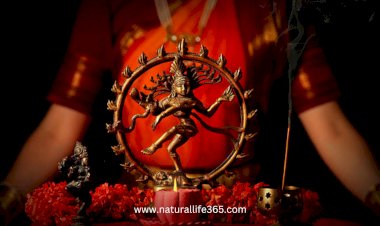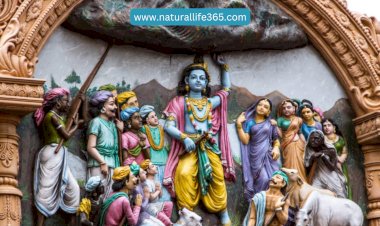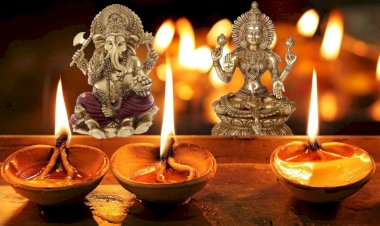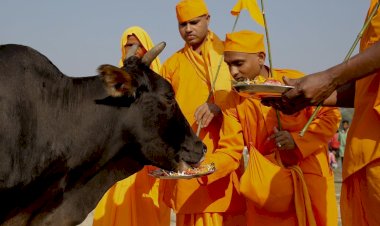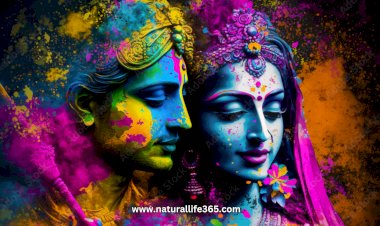Do Hindus Believe in Reincarnation?
For many Hindus, the idea of reincarnation is a fundamental part of their faith. In this post, we take a closer look at the concept of reincarnation, and how it fits into the larger worldview of Hinduism.
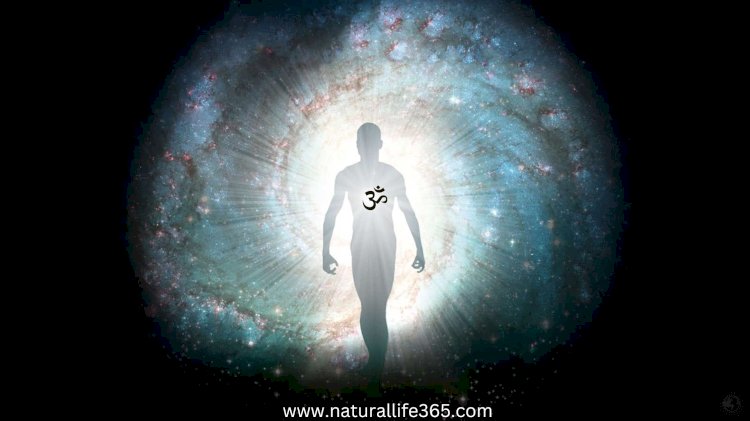
Hinduism is a complex religion with a rich history and diverse beliefs. One of the most commonly known beliefs associated with Hinduism is reincarnation. But what exactly is reincarnation, and do Hindus really believe in it?
In this article, we will explore the concept of reincarnation in Hinduism, its evidence in Hindu scriptures, as well as its practice and cultural significance in Hinduism. We will also address some common misconceptions and criticisms about reincarnation in Hinduism.
But first, let's start with a brief overview of Hinduism itself. Hinduism is one of the world's oldest religions, with a history spanning over 5,000 years. It originated in the Indian subcontinent and is considered a way of life rather than just a religion. Hindus believe in many gods and goddesses but also believe in the concept of a supreme being called Brahman.
You may want to read Why Does Hinduism Have so Many Gods?
Hinduism is also known for its diverse practices and beliefs. From elaborate rituals to philosophical discussions, Hinduism encompasses a wide range of traditions and beliefs. Reincarnation is just one of the many beliefs associated with Hinduism, and we'll explore it further in the following sections.
What is Reincarnation?
Reincarnation is the belief that when a person dies, their soul is reborn into a new body. This process is thought to continue until the soul reaches a state of enlightenment and is no longer subject to the cycle of birth and death.
In Hinduism, reincarnation is an integral part of the belief system. According to Hinduism, each individual has a soul, known as the Atman, which is eternal and indestructible. The Atman is believed to take on different physical bodies in each lifetime, depending on the actions and choices made in the previous life.
The process of reincarnation is governed by the concept of Karma. Karma refers to the consequences of one's actions, both good and bad, and is thought to determine the nature of a person's next life. Good deeds lead to positive consequences in the next life, while bad deeds lead to negative consequences.
There are different types of reincarnation in Hinduism. Some believe in the reincarnation of animals and plants, while others believe in the reincarnation of human beings only.
Overall, reincarnation is a complex and deeply ingrained belief in Hinduism. It is tied to the concepts of karma, the Atman, and the cycle of birth, death, and rebirth. In the following sections, we will explore the evidence of reincarnation in Hinduism and its significance in practice and culture.
Evidence of Reincarnation in Hinduism
The concept of reincarnation in Hinduism is not just a belief, but it is also supported by various pieces of evidence within the religion's scriptures and philosophy. Here are some of the key pieces of evidence that support the belief in reincarnation in Hinduism:
- The concept of Karma: As mentioned earlier, Karma plays a significant role in the process of reincarnation in Hinduism. The idea is that every action, thought, and intention of a person has consequences that will affect them in this life and the next. This means that good deeds lead to good karma, while bad deeds lead to bad karma, and the accumulated karma decides the nature of the next birth.
- The cycle of birth, death, and rebirth: The cycle of birth, death, and rebirth is a fundamental concept in Hinduism. According to this concept, every soul is on a journey through multiple lives, and death is not the end, but just a transition from one life to the next. The ultimate goal is to break free from the cycle of birth and death by achieving spiritual enlightenment.
- The role of Atman in reincarnation: The Atman, or the individual soul, is believed to be the essence of every living being. According to Hinduism, the Atman is eternal and indestructible, and it takes on a new physical body in every life. The actions and choices of a person in their current life are believed to shape their future lives.
These are just a few of the key pieces of evidence that support the belief in reincarnation in Hinduism. The idea of reincarnation is also supported by various Hindu scriptures, including the Vedas, Upanishads, and the Bhagavad Gita. In the next section, we will explore some of these scriptures in more detail.
Hindu Scriptures and Reincarnation
Reincarnation is a central concept in Hinduism, and it is also supported by various Hindu scriptures. Here are some of the key scriptures that discuss reincarnation in Hinduism:
- The Vedas: The Vedas are the oldest scriptures in Hinduism and are considered to be the foundation of the religion. The Vedas contain hymns, prayers, and rituals still recited and performed by Hindus today. While the Vedas do not explicitly mention reincarnation, they do discuss the idea of the soul and its journey beyond death.
- The Upanishads: The Upanishads are a collection of philosophical texts that discuss the nature of reality and the self. They are considered to be some of the most important texts in Hinduism and are often studied by those seeking spiritual enlightenment. The Upanishads discuss reincarnation in detail and explain how the Atman takes on new bodies in each life.
- The Bhagavad Gita: The Bhagavad Gita is a Hindu scripture that contains a dialogue between Lord Krishna and the warrior Arjuna. The text discusses various spiritual concepts, including karma, yoga, and reincarnation. The Bhagavad Gita explains how the actions of a person in their current life will determine their next life and emphasizes the importance of spiritual devotion and enlightenment.
You may want to read 6 Books You Must Read To Understand Hinduism
These are just a few examples of the many Hindu scriptures that discuss reincarnation. The evidence of reincarnation in these scriptures has helped to shape the beliefs and practices of Hinduism over the centuries. Many Hindus view reincarnation as a natural and inevitable part of life and strive to accumulate good karma to attain a better life. In the next section, we will explore the practice of reincarnation in Hinduism and its cultural significance.
Misconceptions about Reincarnation in Hinduism
Despite its prevalence in Hinduism, there are several common misconceptions about the concept of reincarnation. Here are some of the most common ones:
- Reincarnation is the same as rebirth: Many people use the terms reincarnation and rebirth interchangeably, but they actually have different meanings. Reincarnation refers to the rebirth of the soul in a new body, while rebirth refers to the birth of a new physical body without any connection to the previous life.
- Reincarnation is random: While the specific circumstances of a person's next life are determined by their accumulated karma, many believe reincarnation is completely random. In reality, the law of karma determines the specific circumstances of a person's next life based on their actions and intentions in their current life.
- Reincarnation is fatalistic: Some people believe that the idea of reincarnation leads to fatalism or the belief that everything is predetermined and that there is no free will. However, in Hinduism, the concept of karma emphasizes the importance of individual responsibility and the power of one's actions to shape their future life.
- Reincarnation is an exclusively Hindu concept: While reincarnation is most commonly associated with Hinduism, it is actually a belief that is shared by many other religions, including Buddhism, Jainism, and Sikhism.
It is important to recognize and understand these misconceptions to have a more accurate understanding of the concept of reincarnation in Hinduism. While reincarnation is a complex and often misunderstood concept, it remains a fundamental belief for many Hindus and has played a significant role in shaping the religion and culture of India.
Reincarnation and Hindu Culture
In Hinduism, the belief in reincarnation is more than just a philosophical concept - it is also a practical way of life. The idea that one's actions in this life will determine the next life has led to a strong emphasis on morality and ethics in Hinduism. Here are some of the ways that the belief in reincarnation is put into practice in Hinduism:
- Karma: The law of karma is a central concept in Hinduism and is based on the idea that every action has a consequence. Hindus believe that the actions and intentions of a person in this life will determine their next life. Therefore, the accumulation of good karma through moral and ethical behavior is a key aspect of Hinduism.
- Dharma: Dharma refers to the moral and ethical duties that are expected of every Hindu. These duties vary depending on a person's caste, gender, and stage of life, but they generally involve acting in a way that is beneficial to society and following divine law. By following their dharma, Hindus believe they will accumulate good karma and improve their chances for a better next life.
- Puja: Puja is the act of worship in Hinduism and involves offering prayers and rituals to the gods and goddesses. By performing puja, Hindus seek to gain the favor of the deities and accumulate good karma.
- Moksha: Moksha is the ultimate goal of Hinduism and refers to the liberation of the soul from the cycle of birth and death. Hindus believe that through spiritual practice and enlightenment, they can break free from the cycle of reincarnation and attain moksha.
In addition to these practices, the belief in reincarnation has also had a significant impact on the culture and society of India. It has led to a strong emphasis on family and community, as Hindus believe that their actions not only affect their own next life but also the lives of their loved ones. It has also influenced the caste system, as many Hindus believe that a person's caste is determined by their karma from past lives.
Overall, the belief in reincarnation is an integral part of Hinduism and has shaped the religion and culture of India in many ways. It serves as a practical guide for ethical behavior and spiritual growth and offers hope for a better future in the next life.
Reflection on the Importance of Reincarnation in Hinduism
The belief in reincarnation is an essential component of Hinduism, shaping its beliefs, practices, and culture. The concept of reincarnation provides Hindus with a framework for understanding the nature of existence and the purpose of life. Here are some reflections on the importance of reincarnation in Hinduism:
- Understanding the cycle of birth and death: The idea of reincarnation helps Hindus understand the cyclical nature of life and death. It emphasizes the impermanence of the physical world and the eternal nature of the soul. By recognizing the temporary nature of their physical body and the eternal nature of their soul, Hindus seek to detach themselves from material desires and focus on spiritual growth.
- Accepting the law of karma: The belief in reincarnation is closely tied to the law of karma, which emphasizes that every action has a consequence. Hindus believe that their actions in this life will determine their next life and that they have the power to shape their own destiny. By accepting the law of karma, Hindus are motivated to live a moral and ethical life, knowing that their actions will have consequences beyond this life.
- Offering hope for a better future: The belief in reincarnation offers Hindus hope for a better future. They believe that they will be reborn based on their accumulated karma and that they have the potential to improve their circumstances in the next life. This belief offers comfort and hope to those who are facing difficult circumstances in this life and motivates them to live a life of virtue and righteousness.
- Emphasizing the importance of spiritual growth: The ultimate goal of Hinduism is moksha or liberation from the cycle of birth and death. The belief in reincarnation emphasizes the importance of spiritual growth and enlightenment as a means of achieving this goal. By focusing on spiritual growth and seeking to attain moksha, Hindus can transcend the limitations of the physical world and attain ultimate freedom and liberation.
In conclusion, the belief in reincarnation is a fundamental part of Hinduism, shaping its beliefs, practices, and culture. By understanding the cycle of birth and death, accepting the law of karma, offering hope for a better future, and emphasizing the importance of spiritual growth, Hindus can live a life of purpose, meaning, and fulfillment.
Thanks for reading! ![]()
If you value these free online resources provided by Natural Life 365, please consider supporting my website by sharing the blogs ![]()









